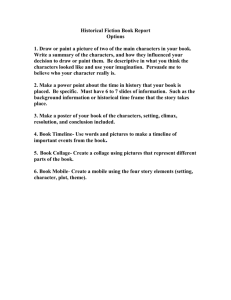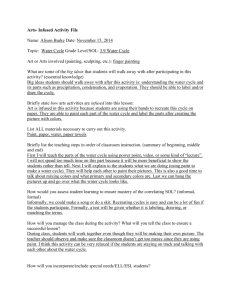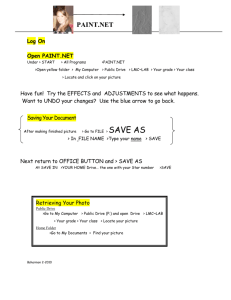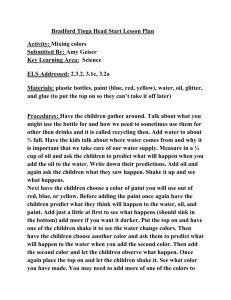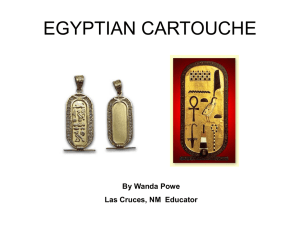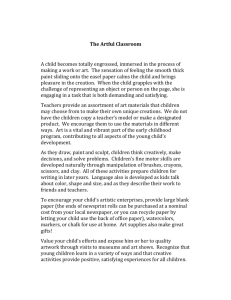Elementary School Lesson Plan: Recognizing Cause and Effect
advertisement
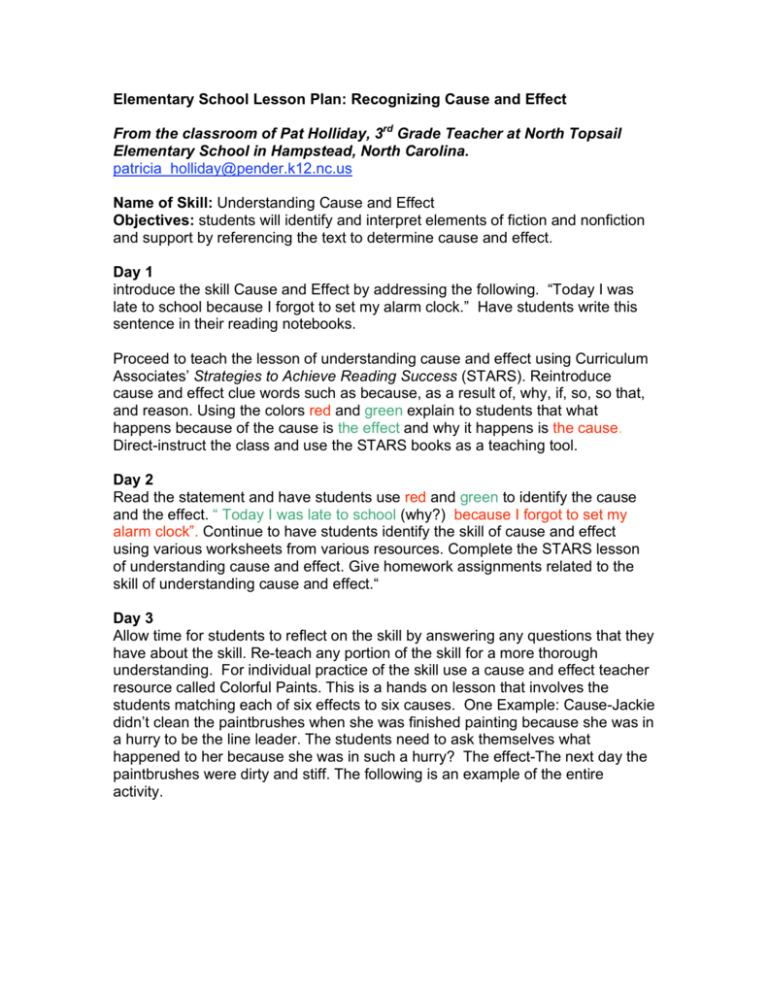
Elementary School Lesson Plan: Recognizing Cause and Effect From the classroom of Pat Holliday, 3rd Grade Teacher at North Topsail Elementary School in Hampstead, North Carolina. patricia_holliday@pender.k12.nc.us Name of Skill: Understanding Cause and Effect Objectives: students will identify and interpret elements of fiction and nonfiction and support by referencing the text to determine cause and effect. Day 1 introduce the skill Cause and Effect by addressing the following. “Today I was late to school because I forgot to set my alarm clock.” Have students write this sentence in their reading notebooks. Proceed to teach the lesson of understanding cause and effect using Curriculum Associates’ Strategies to Achieve Reading Success (STARS). Reintroduce cause and effect clue words such as because, as a result of, why, if, so, so that, and reason. Using the colors red and green explain to students that what happens because of the cause is the effect and why it happens is the cause. Direct-instruct the class and use the STARS books as a teaching tool. Day 2 Read the statement and have students use red and green to identify the cause and the effect. “ Today I was late to school (why?) because I forgot to set my alarm clock”. Continue to have students identify the skill of cause and effect using various worksheets from various resources. Complete the STARS lesson of understanding cause and effect. Give homework assignments related to the skill of understanding cause and effect.“ Day 3 Allow time for students to reflect on the skill by answering any questions that they have about the skill. Re-teach any portion of the skill for a more thorough understanding. For individual practice of the skill use a cause and effect teacher resource called Colorful Paints. This is a hands on lesson that involves the students matching each of six effects to six causes. One Example: Cause-Jackie didn’t clean the paintbrushes when she was finished painting because she was in a hurry to be the line leader. The students need to ask themselves what happened to her because she was in such a hurry? The effect-The next day the paintbrushes were dirty and stiff. The following is an example of the entire activity. Cause and Effect Application and/or Extension Have the students make booklets on Cause and Effect, based on six different events. 1. Give the students six pieces of paper. Have the students fold the paper in half. 2. Have the students Label the top Half Cause and the bottom half Effect. 3. Have students Write the Following Cause Scenarios: One event at the top of each sheet of paper. Have students illustrate the event. a. “Jackie didn’t clean the paintbrushes when she finished painting because she was in a hurry to be the line leader.” b. “Linda didn’t wear a paint shirt over her new school T-Shirt when it was her turn to paint.” c. “Denise likes to see how many different colors she can make by mixing the paint colors all together. d. “Skip loves horses so much that he always ends up drawing horses whenever he gets the chance.” e. “Clyde trips over everything. He wasn’t watching where he was going when he walked by the art easel.” f. “John painted a big Valentine heart for his girlfriend and used all the red paint.”. 4. After students have written the event (Cause) on six different pieces of paper, the students will write and illustrate what he or she thinks the effect will be for each of the student’s actions. Possible Effects might be as follows: 1. “The next day the paintbrushes were dirty and stiff. 2. “She spilled paint on her new shirt and her mother was not very happy.” 3. “She painted a rainbow with the many colors she made by mixing the paint.” 4. “He painted a picture of black stallion.” 5. “The paint sure made a mess all over the floor.” 6. “There isn’t any red paint left for anyone else to use, but the girlfriend sure is happy.” Note: Have students write what would happen as a result of the event. (EFFECT) on the bottom half of the page. Have students illustrate the Effect.
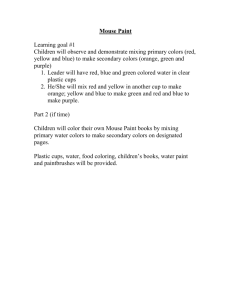
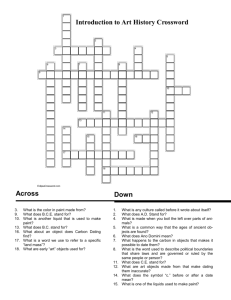
![[Agency] recognizes the hazards of lead](http://s3.studylib.net/store/data/007301017_1-adfa0391c2b089b3fd379ee34c4ce940-300x300.png)
